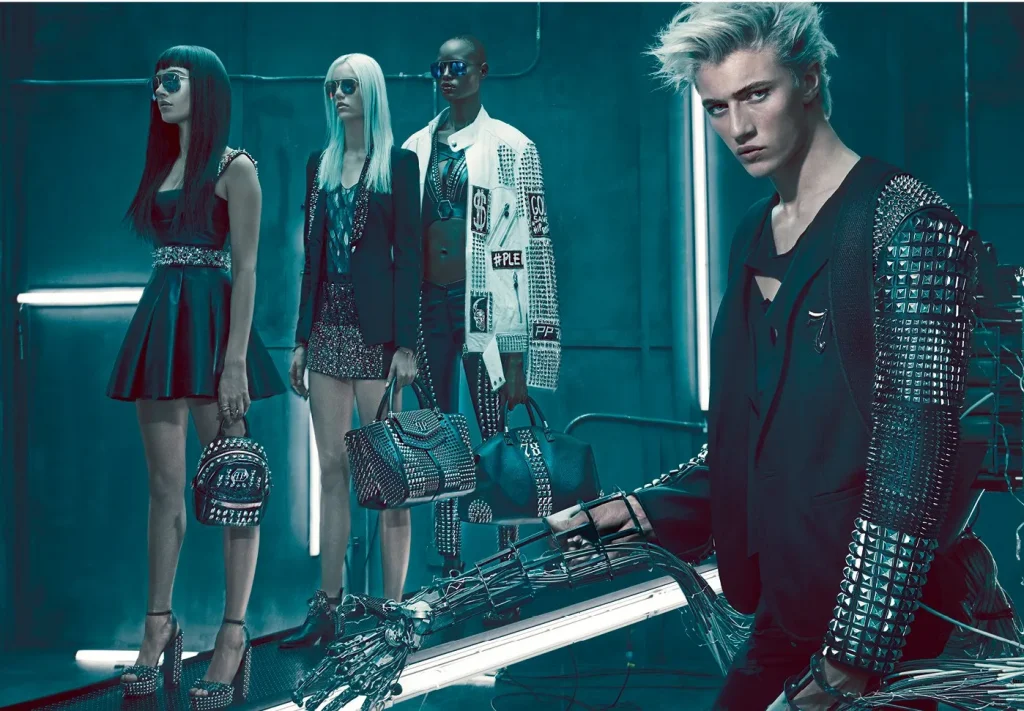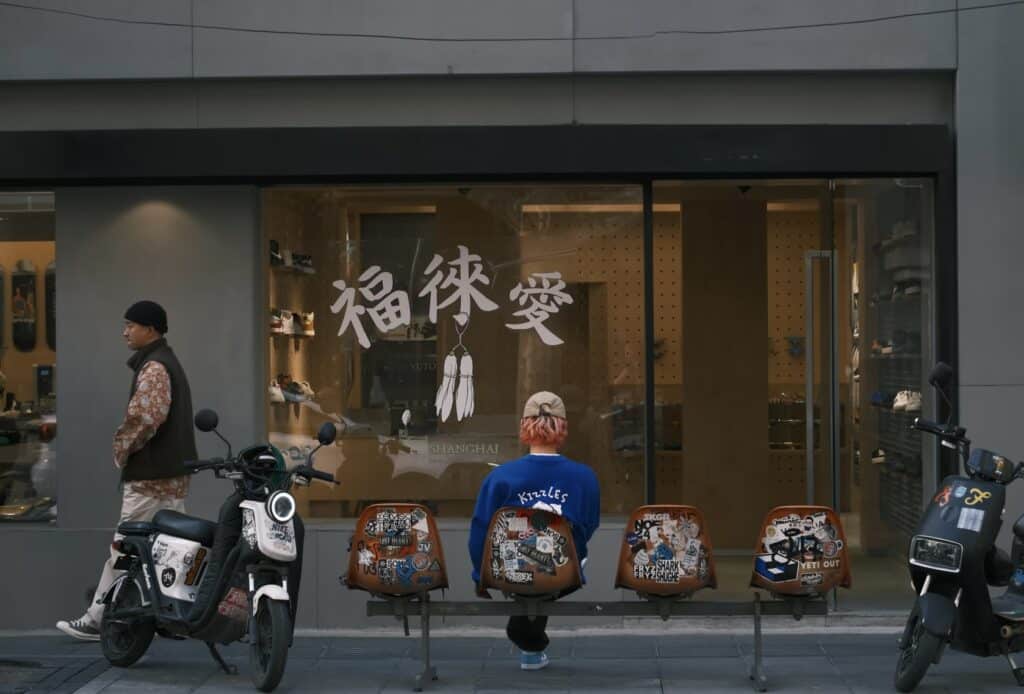Philipp Plein has failed to respond to a lawsuit accusing it of co-opting some of the artwork that appeared on garments in its Spring/Summer 2020 collection. That is what counsel for Resurrect By Night (“RBN”) asserts in an entry of default filed last week, asking a New York federal court to enter a default judgment in its favor – and award it any further relief that the court “deems just and proper” – on the basis that Plein’s corporate entities PP Retail USA, LLC, Philipp Plein Americas, Inc., and Philipp Plein International AG (the “defendants”) have “failed to appear or otherwise respond to the complaint” in a timely manner despite properly being served with the complaint in June.
RBN’s default filing comes just over three months after it named the defendants in a copyright infringement lawsuit, pointing to ahandful of pieces from designer Philipp Plein’s rock-n-roll-inspired Spring/Summer 2020 collection, which included skull-adorned face masks, heavily studded and/or spiked leather jackets and over-the-knee boots, and “KISS” embroidered mini dresses thanks to a collaboration with the band. According to the June complaint, RBN asserts that the defendants allegedly took its artwork and slapped it on $945 t-shirts, $6,915 leather jackets, and $820 jeans, among other S/S20 garments, and began selling them under the Philipp Plein brand name despite having never been authorized to do so. (Philipp Plein, himself, is not named as a defendant in the suit.)
Setting the stage in its complaint, RBN alleges that thanks to the appeal of its “innovative clothing,” it and “its designs have become targets for unscrupulous individuals and entities that wish to exploit the goodwill, reputation and fame that [it has] amassed in its products.” One such copycat is Philipp Plein, per RBN, which argues that the German brand took “artwork that is substantially similar to [RBN’s] designs,” and “manufactured, imported, exported, advertised, distributed, offered for sale or sold [those] designs” by way of its own 100-plus stores and its e-commerce site, as well as via Alibaba’s sweeping TMall platform, where Plein began selling its products in December 2020.
In doing so, RBN claims that Plein has taken its “unique artistic style and approach and misappropriated it for [Plein’s] own use,” and run afoul of U.S. copyright law.
Specifically, RBN points to two designs that Plein allegedly misappropriated: “The first design features a muscular, skull-faced character raising clenched fists,” and the second “features a blonde, skull-faced character in a short dress, above flames.” Despite knowing that RBN “never authorized [it] to appropriate, reproduce, display or distribute the [allegedly infringing] designs, let alone to adapt the designs in order to create shirts and other derivative works based on [RBN’s] designs,” RBN claims that Plein engaged in the “unauthorized and unlawful” use of these two designs by reproducing them “on apparel under the ‘Philipp Plein’ name,” and displaying, distrusting, and selling them.
Upon learning of Plein’s use of the artwork, RBN claims that it “contacted all three [of the] defendants in September 2020 and requested that [they] cease and desist, inter alia, producing, distributing, marketing and selling the infringing products,” but the defendants “have not complied and therefore, their conduct is willful.” With the forgoing in mind and given that the defendants’ conduct has “damaged [its] ability to sell or license the designs while, at the same time, enabling the defendants to profit from the unauthorized reproduction, adaptation, display, sale and distribution of the designs,” RBN sets forth copyright infringement claims, and is seeking monetary damages and injunctive relief.
Another Suit Underway
Hardly a stranger to litigation, the Philipp Plein brand and its eponymous founder landed on the receiving end of a strongly-worded lawsuit early this year accusing them of discriminating against an employee on the basis of his sexual orientation. According to the complaint that he filed in a New York state court in February, Amro Alsoleibi asserts that during the course of his employment, Mr. Plein engaged in – and the company fostered – a “pattern and practice of discriminating against gay men,” allegedly telling employees on more than one occasion that “you cannot be too gay” and that company’s “men are 100% heterosexual.”
The suit – in which the plaintiff claims that he suffered from gender, sexual orientation, HIV status, and disability discrimination; Family and Medical Leave Act retaliation and interference; sexual harassment; hostile work environment; failure to provide accommodations; and retaliation all in violation of the Americans with Disabilities Act, as well as various New York state statutes, such as the New York State Human Rights Law – is currently pending in a New York state court.
In its formal response to the complaint, counsel for Plein denied the bulk of Alsoleibi’s allegations. At the same time, Plein set out twenty-five affirmative defenses, asserting that, among other things, Philipp Plein “employs numerous other employees that identify as gay, and thus, does not discriminate on the basis of sexuality or on any other protected characteristic.” Beyond that, the brand attempts to chip away at Alsoleibi’s Family and Medical Leave Act (“FMLA”) claim by asserting that it is not a “covered employer” under the FMLA and that he is not an “eligible employee” within the meaning of the FMLA because “he did not work at a location where 50 or more employees worked or within 75 miles of it.”
Still yet, Plein asserts that Alsoleibi “failed to state a proper claim for emotional distress damages because nothing in the complaint rises to the level of extreme or outrageous conduct,” and that he is barred from seeking damages because of “allegedly ‘willful’ conduct” because of the defendants’ “good faith reliance on applicable laws, statutes, and regulations.”
At the time of the filing, a rep for Plein dismissed the case as meritless, telling TFL, “The false accusations of homophobia against Mr. Plein were just a desperate attempt to hijack and exploit the LGBTQ cause in order to cover up the misconduct of a dishonest employee who was fired for just cause.”
As of now, both cases are still underway.











